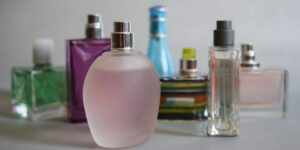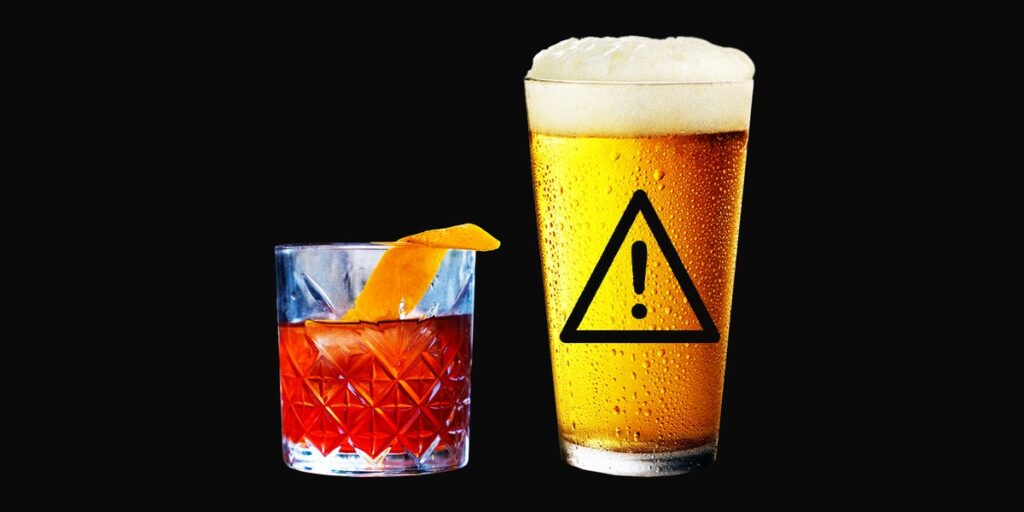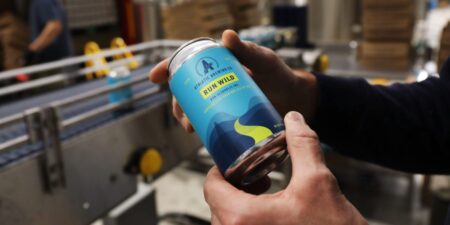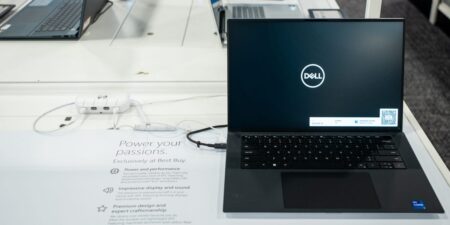- The US Surgeon General recommended disclosing the cancer risk of alcoholic beverages on Friday.
- While just a recommendation, the advisory sent shares of some big alcohol manufacturers lower.
- It also presents a fresh opportunity for makers of alternatives to alcohol.
The US Surgeon General’s finding Friday that alcohol causes cancer led to stock declines for some of the beverage industry’s biggest names — and an opportunity for some newer entrants.
Drinking is a major cause of preventable cancer, Dr. Vivek Murthy said in the advisory, which also recommended placing a notice about the cancer risk on beer, wine, and spirits — similar to how packs of cigarettes include warnings about their health risks.
On its own, the recommendation doesn’t mean that labels on booze will change. That would require an act of Congress.
Murthy is also part of President Joe Biden’s administration and will be replaced by President-elect Donald Trump’s nominee for surgeon general after he takes office on January 20. That nominee, Janette Nesheiwat, could take a different view on the advisory if she’s confirmed by the Senate.
However, the advisory prompted a response from some companies and the markets today. Here’s what it might mean:
Shares of alcohol companies like Diageo and AB InBev lost out
Stocks of some of the biggest alcohol companies in the world were down Friday after the surgeon general released his advisory.
Shares of Budweiser-maker Anheuser-Busch InBev closed down 2.8% in Belgium. In London, shares of Diageo, the company behind Captain Morgan rum and Ketel One vodka, closed nearly 4% lower.
Still, there’s reason to doubt that the surgeon general’s advisory will lead to a lot less drinking and fewer sales for the big booze makers, Kate Bernot, lead analyst at Sightlines, which researches the alcohol space, told Business Insider.
Annual per-capita alcohol consumption in the US has hovered around 2 ½ gallons since 2012, Bernot said, citing data from the National Beer Wholesalers Association. Gallup polling shows that the percentage of Americans who say that they drink alcohol has mostly stayed between 60% and 65% since the early 1990s, she added.
That stability in habits comes despite previous research into the link between alcohol consumption and cancer as well as the growth of “Dry January,” a commitment drinkers make to avoid drinking during this time of the year.
“Maybe some people change their behavior, but I don’t think we’re going to see population-level dramatic shifts in alcohol consumption,” Bernot said.
Makers of non-alcoholic beer and spirits could get a boost
Even if there is a nationwide shift away from alcohol, many of the big producers already have alcohol-free options that they have been ramping up for years. In 2023, for instance, Constellation released a non-alcoholic version of Corona beer.
“The diversification has been happening as a result of consumers’ potential thoughts about alcohol’s effect on their health,” Bernot said.
Murthy’s advisory came right as many drinkers are trying to cut back on their alcohol consumption in the new year or embarking on a Dry January.
That’s a potential win for many other brands that make alcohol-free beer, wine, gin, and other drinks.
The CMO of non-alcoholic spirit brand Spiritless, Tom Santangelo, told BI he sees these comments as the “front end of a tipping point.”
“My guess is that for a lot of America, this surgeon general statement is kind of the message they need to come to a realization that this is something serious,” Santangelo said.
He said the industry has already grown significantly in the last few years as alcohol moderation and abstention have become increasingly normalized. Similar to cigarettes, change may not come quickly, but he said, “It’s a message that’s going to carry a lot of weight.”
Milan Martin, the CEO of non-alcoholic spirit brand The Free Spirits Company, told BI that the US Surgeon General’s comments are another “nugget” of insight that will contribute to cultural change around drinking.
“All of these teeny little nuggets sit in our minds and sit there at the point where we’re ready to order our third drink and impact our choice,” Martin said, adding that conversations among peers and in the media around drinking are contributing to changes in drinking culture.
Athletic Brewing, which sells non-alcoholic beer, similarly said that while it is “aware of the ongoing discussions about alcohol and health,” it “has never been anti-alcohol.”
“We believe the alcohol and non-alcoholic sectors are synergistic,” the company told BI.
Innovative soft drinks, from seltzer to kava, could benefit
Besides alcohol-free beer and cocktails with all the ingredients other than the, well, alcohol, there are other beverages that have attracted attention from the sober-curious — and could benefit if people cut back on booze.
Celebrity seltzer and soda brands often pitch themselves as upscale, healthier soft drinks, BI reported last year.
Others have turned to kava, a beverage that’s common to the Pacific and is supposed to help you relax and put you in a better mood. While the most authentic kava is served on its own, brands that have added juice, sugar, and coloring before canning it have popped up over the last few years. Some point to their kava as a healthier choice than a cold beer or cocktail.
Cannabis products could become more attractive
People looking to cut back on alcohol sometimes turn to cannabis as a replacement, especially as governments loosen restrictions. That could be good news for makers of everything from CBD-infused beverages to marijuana dispensaries. Cannabis company Canopy Growth, for example, rose more than 2% Friday.
In 2022, the number of daily or near-daily cannabis users outpaced the number of daily or near-daily drinkers, research from Carnegie Mellon University found.
Some states, such as Minnesota and Texas, already allow liquor stores to sell drinks that contain THC, the main psychoactive component in marijuana, right alongside liquor.
Read the full article here
















